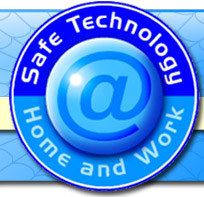
workplace template and specimen policy
The company supplies electronic communications infrastructure and tools and all messages produced or carried by such means are Company Property. The Company in its sole discretion may determine whether an employee has unlimited, restricted, or no access to the Internet through its Information Technology (IT) system.
Employees may use electronic communication tools to communicate internally and externally and for exploration of the Internet for legitimate business or professional reasons. The Company provides employees with these tools to facilitate business communications and enhance productivity.
Policy Statement
Users of the Company’s network, computer and electronic communication resources have a responsibility to properly use and protect those information resources and to respect the rights of others. This policy provides guidelines for the appropriate use of information technologies and electronic communications.
Policy Purpose
The purpose of the Electronic Communications Acceptable Use Policy is to help ensure proper use of the Company’s electronic resources. Computers, networks and other electronic communication devices are powerful enabling technologies for accessing and distributing Company information. As such, they are strategic technologies for the current and future needs of the Company. Because these technologies enhance each individual’s ability to access and copy information from remote sources, users must be mindful of the rights of others to their privacy, intellectual property and other rights. This Use Policy codifies what is considered appropriate use of computers, networks and other electronic communication devices with respect to the rights of others. With the privilege to use the information resources of the Company comes specific responsibilities outlined in this Policy.
Summary
Users of Company information resources must respect copyrights and licenses, respect the integrity of computer-based information resources, refrain from seeking to gain unauthorized access, and respect the rights of other information resource users. This policy covers the appropriate use of all information resources including computers, networks, and the information contained therein.
Section headings are:- POLICY SCOPE AND APPLICABILITY
- POLICIES
- CONSEQUENCES OF MISUSE OF PRIVILEGES
policy scope and applicability
- Applicability — This policy is applicable to all Company staff and to others granted use of Company information resources. This policy refers to all Company information resources whether individually controlled or shared, stand-alone or networked. It applies to all computer and communication facilities owned, leased, operated, or contracted by the Company. This includes networking devices, personal digital assistants, telephones, wireless devices, personal computers, workstations, mainframes, minicomputers, and any associated peripherals and software, regardless of whether used for administration, research or other purposes.
- Legal and Company Process - The Company reserves the right to monitor all forms of electronic communication carried out over its networks using its computers and other electronic communication devices. Under some circumstances, as a result of investigations, subpoena or lawsuits, the Company may be required by law to provide electronic or other records or other information related to those records or relating to use of information resources (“information records”). The Company may in its reasonable discretion review information records, e.g., for the proper functioning of the Company or for internal investigations.
policies
- Integrity of Information Resources - Computer users must respect the integrity of computer-based information resources.
- Modification or Removal of Equipment - Computer users must not attempt to modify or remove computer equipment, software, or peripherals that are owned by others, without proper authorization.
- Encroaching on Others' Access and Use - Computer users must not encroach on others' access and use of the Company’s computers, networks, or other information resources, including digital information. This includes but is not limited to: attempting to access or modify personal, individual or any other Company information for which the user is not authorized; attempting to access or modify information systems or other information resources for which the individual is not authorized; sending chain-letters, unsolicited bulk electronic mail either locally or off-site; printing excess copies of documents, files, data, or programs; unauthorized modification of system facilities, operating systems, or disk partitions; attempting to crash or tie up a Company computer, network or other information resource; or otherwise damaging or vandalizing Company computing facilities, equipment, software, computer files or other information resources.
- Unauthorized or Destructive Programs - Computer users must not intentionally develop or use programs which disrupt other computer or network users or which access private or restricted information or portions of a system and/or damage software or hardware components of a system.
- Unauthorized Access - Computer users must refrain from seeking to gain unauthorized access to information resources or enabling unauthorized access.
- Abuse of Computing Privileges - Users of Company information resources must not access computers, computer software, computer data or information, or networks without proper authorization, or intentionally enable others to do so, regardless of whether the computer, software, data, information, or network in question is owned by the Company.
- Reporting Problems - Any defects discovered in system accounting or system security must be reported through the proper reporting channels.
- Password Protection - An employee who has been authorized to use a password-, or an otherwise protected account may be subject to disciplinary action up to and including discharge, dismissal and/or legal action if he/she discloses the password or otherwise makes the account available to others without prior Company permission.
- Usage - Computer users must respect the rights of other computer users.
- Prohibited Use - Use of the Company’s computers, network or electronic communication facilities (such as electronic mail or instant messaging, or systems with similar functions) to send, view or download fraudulent, harassing, obscene, pornographic, threatening, racist or other messages or material that are a violation of applicable law or Company policy, such as under circumstances that might contribute to the creation of a hostile work environment, is prohibited.
- Mailing Lists - Users must respect the purpose and charters of computer mailing lists (including local or network news groups and bulletin-boards). The user of an electronic mailing list is responsible for determining the purpose of the list before sending messages to or receiving messages from the list. Subscribers to an electronic mailing list will be viewed as having solicited any material delivered by the list as long as that material is consistent with the list's purpose. Persons sending to a mailing list any materials which are not consistent with the list's purpose will be viewed as having sent unsolicited material.
- Advertisements - In general, the Company's electronic communication facilities should not be used to transmit personal advertisements, solicitations or promotions without formal approval from the Company.
- Information Belonging to Others - Users must not intentionally seek or provide information on, obtain copies of, or modify data files, programs, passwords or other digital materials belonging to other users, without the specific permission of those other users.
- Political and Personal Use
- Political Use - Company information resources must not be used for partisan political activities.
- Personal Use - Company information resources should not be used for personal activities not related to appropriate Company functions.
consequences of misuse of computing privileges
A user of Company information resources who is found to have purposely or recklessly violated any of these policies will be subject to disciplinary action up to and including discharge, dismissal and/or civil or criminal legal action. Users, when requested, are expected to cooperate in any investigation of system abuse. Users are encouraged to report suspected abuse, especially any damage to or problems with their files. Failure to cooperate may be grounds for cancellation of access privileges, or other disciplinary actions.
A Summary of the Electronic Communications Acceptable Use Policy
- The Company provides its employees with communication infrastructure (networks) and tools (PCs, telephones, mobiles etc…) to facilitate business communications and enhance productivity.
- Employees may use the Company’s infrastructure and communication tools to communicate internally and externally and browse the Internet for legitimate business or professional activities.
- All communication and messages carried over the Company’s communication infrastructure (i.e. network, PCs, telephones, mobiles etc…) are considered to be Company Property.
- Company users must refrain from seeking to gain unauthorised access to information resources or enabling unautorised access without proper Company authorisation.
- The Company reserves the right to monitor any communication carried over its infrastructure.
- Employees must take responsibility to protect the Company’s information. Authorised passwords and protected accounts should not be made available to others without the Company’s permission.
- Employees must not use the Company’s infrastructure and communication tools to send, view or download fraudulent, harassing, obscene, pornographic, threatening, racist or other material that are a violation of applicable law or Company policy.
- Company users must respect the rights of other users.
- The infrastructure and communication tools must not be used for personal activities not related to appropriate Company functions without prior permission from the employer.
- The infrastructure and communication tools must not be used for partisan political activities.
- A user of Company information resources who is found to have purposely or recklessly violated any of these policies will be subject to disciplinary action up to and including discharge, dismissal and/or civil or criminal legal action.
- Criminal legal action can result in the following penalties:
- Up to 8 years jail term
- Fine of up to SR 30,000
- Confiscation of all equipment and storage medium used in connection with the offence.








